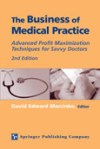ADA Image Tarnished?
[By Darrell K. Pruitt; DDS ]
]
Dear Editor,
This is a sincere letter which I am sure you will agree should be published in the October 2009 edition of the JADA. Today is July 19, 2009. I am allowing for the six weeks minimum time it requires for letters to appear in print following their selection for publication. It will be posted on the Internet immediately. In spite of this, I trust you will eventually agree to publish it in spite of your archaic rules. Otherwise, by November, history could show that the editor of the JADA arguably denied representation of dental patients’ interests at a most critical time in the history of the profession. That would be regrettable for your own professional reputation as well as for the JADA’s. As an ADA member, if my concerns are ignored, I will hold you publicly accountable for an explanation for a long time.
Public Laundry
From now on, we will agree to wash our laundry in public because otherwise it doesn’t always come clean. You can call the pressure I bring unprofessional if you want, but following the ADA News’ public exhibition of their shoddy ethics this week, it would be foolish to use my methods as an excuse to deny my access to membership. As I am certain you are aware, there were three revisions of “ADA/idm to phase out service” on ADA News Online (7/10, 7/13 and 7/16). I not only welcome a wide-open public discussion about ethics in journalism with representatives of the JADA, but I encourage it. We both know that the ADA needs clean laundry now more than ever before in its history.
ADA Business Enterprises, Inc.
For members who haven’t heard, the 2 ½ year old joint venture of our ADA Business Enterprises, Inc. (ADABEI) with Intelligent Dental Marketing – a Utah-based private business – fell apart in late spring of this year. Months later, our ADA leaders are still less than transparent with membership about what went wrong. I’ve been in business long enough to know that if mistakes by employees are not revealed and discussed, they are bound to happen again and again. And, it’s not like the leaders of the ADA were not warned. They just didn’t take heed. By late 2007, many knowledgeable people involved in the dental industry easily recognized the faults in the partnership between our non-profit professional organization and a for-profit Utah advertising company. In hindsight, anyone can see that ADA/IDM’s slogan, “Image is everything,” clearly betrays an attitude inconsistent with both the mission of the ADA and the Hippocratic Oath. Nevertheless, even the spirit of the slogan was regretfully adopted by the leaders of the ADA’s Business Enterprises, Inc. Now it is the image of the entire ADA that is suffering the damage.
ADABEI
I personally began questioning the accountability of the tricky ADA/IDM business model over two years ago when the profits from ADABEI had officials excited about avoiding the need to raise membership dues last year. Not unexpectedly, in the atmosphere of euphoria, nobody in Chicago wanted to acknowledge the concerns of a handful of alert members. We were cast aside as troublemakers. So how critical is the risk? With massive, unprecedented health care legislation imminent, this is the worst time imaginable for our stoic, image-conscious officers to lead us to nation-wide embarrassment.
Following the Money
The surrender to such temptations for leaders of non-profit organizations is not unprecedented. Do you know why the dues for the American Association of Retired People (AARP) have been kept so low? Not unlike the ADA, the non-profit AARP reaps profits from insurance policies and other products that its leaders sell to membership – even using misleading ads in AARP dues-supported publications. However, unlike dues money, vendor “kickbacks” don’t depend on accountability to members. A few years ago, the profits derived from agreements with vendors predictably became the lifeblood for AARP’s self-perpetuating bureaucracy – eventually influencing their lobbying efforts. Since non-profits like the AARP and the ADA are traditionally respected by lawmakers who like huge campaign donations, a non-profit entity’s lobbyists can be tempted to quietly represent vendors’ interests at members’ expense. Sometimes they get caught.
Lost Confidence
Almost a year ago, the AARP lost valuable member confidence when the organization was forced to suspend sales of “limited benefit” health plans backed by UnitedHealth Group (of Ingenix fame). Sen. Chuck Grassley said the plans which leave policyholders vulnerable to tens of thousands of dollars in costs were sold by the AARP to naïve and trusting members using misleading marketing tricks – not unlike those used in the ADA’s promotion of ADA/IDM. Sen. Grassley sent a detailed letter to CEO Bill Novelli demanding answers to questions about health insurance plans promoted to over a million dues-paying AARP members. Grassley told USA Today reporter Julie Appleby that “Insurance is supposed to limit your exposure to the potentially high cost of a serious illness and these plans do the opposite.” (Nov 7 2008).
http://www.usatoday.com/news/health/2008-11-07-aarp-insurance_N.htm
Is AARP-level accountability as good as it gets?
I say no. Attention ADA members – It is my opinion that our leaders are losing the control of our professional organization. The recent failure of ADA/IDM isn’t the first glaring sign of trouble in Headquarters. Over a year ago, the executive director, Dr. James Bramson, was suddenly fired with no explanation. In fact, then President Dr. Mark Feldman commanded that the reasons for the firing will not be disclosed. Obediently, ADA leaders have so far maintained firm control of the top secret information which if released could somehow endanger dental patients (?). Because Bramson’s severance pay came from my dues and not out of Dr. Feldman’s pocket, I think I deserve to know more details. Otherwise, this mistake could happen again and again.
The ADA/IDM disaster is also not the only ADABEI embarrassment I see on the horizon. It is my opinion that CareCredit is also showing signs of silent desperation. On July 9, the officials of the wholly-owned ADA subsidiary purchased an ad on dentalblogs.com titled “Press Release: CareCredit Adds 24-Month, No-Interest [sic] Payment Plan” (no byline).
http://www.dentalblogs.com/archives/administrator/press-release-carecredit-adds-24-month-no-interst-payment-plan/
Even though I approve of the benevolence in the idea of extending credit to those with worsening dental problems – especially during these hard financial times for patients – the anonymous CareCredit (ADA) representative who posted the ad failed to respond to my timely and important question: “If the Red Flags Rule is not delayed for the third time in three weeks, how will it affect those who offer Care Credit?”
Assessment
Nor did he or she respond to my follow up response on July 13. “On July 9 at 4:54 pm, I submitted a sincere question concerning how the Red Flags Rules will affect ADA members who sign up for CareCredit. Instead of posting it with the promise of an answer, you regretfully chose to censor an ADA member. Today, July 13, I have a second and third question: Why did you ignore my first one and who is your boss?”
Conclusion
So far, I’m still waiting for responses to all three questions. I trust you will treat my concerns with more respect, Editor.
Conclusion
And so, your thoughts and comments on this Medical Executive-Post are appreciated. Tell us what you think. Feel free to review our top-left column, and top-right sidebar materials, links, URLs and related websites, too. Then, be sure to subscribe to the ME-P. It is fast, free and secure.
Link: http://feeds.feedburner.com/HealthcareFinancialsthePostForcxos
Channel Surfing
Have you visited our other topic channels? Established to facilitate idea exchange and link our community together, the value of these topics is dependent upon your input. Please take a minute to visit. And, to prevent that annoying spam, we ask that you register.
Link: http://feeds.feedburner.com/HealthcareFinancialsthePostForcxos
Speaker: If you need a moderator or speaker for an upcoming event, Dr. David E. Marcinko; MBA – Publisher-in-Chief of the Executive-Post – is available for seminar or speaking engagements. Contact: MarcinkoAdvisors@msn.com
Get our Widget: Get this widget!
Our Other Print Books and Related Information Sources:
Practice Management: http://www.springerpub.com/prod.aspx?prod_id=23759
Physician Financial Planning: http://www.jbpub.com/catalog/0763745790
Medical Risk Management: http://www.jbpub.com/catalog/9780763733421
Healthcare Organizations: www.HealthcareFinancials.com
Health Administration Terms: www.HealthDictionarySeries.com
Physician Advisors: www.CertifiedMedicalPlanner.com
Subscribe Now: Did you like this Medical Executive-Post, or find it helpful, interesting and informative? Want to get the latest ME-Ps delivered to your email box each morning? Just subscribe using the link below. You can unsubscribe at any time. Security is assured.
Link: http://feeds.feedburner.com/HealthcareFinancialsthePostForcxos
Sponsors Welcomed
And, credible sponsors and like-minded advertisers are always welcomed.
Link: https://healthcarefinancials.wordpress.com/2007/11/11/advertise
Filed under: Breaking News, Career Development, Ethics, Health Insurance, Managed Care, Op-Editorials, Pruitt's Platform, Research & Development | Tagged: AARP, ADA, ADA Business Enterprises, ADA News, ADA News Online, ADA/IDM, ADABEI, American Association of Retired People, American Dental Association, Bill Novelli, CareCredit, Chuck Grassley, Darell Pruitt, DDS, denturist, DMD, Dr. James Bramson, Dr. Mark Feldman, Hippocratic Oath, Inc., Ingenix, Intelligent Dental Marketing, JADA, Journal American Dental Association, Julie Appleby, LD, red flags, red flags dentistry, UHG, UnitedHealth Group, USA Today | 4 Comments »

















































